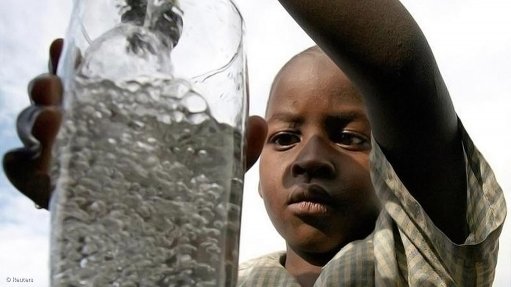
Photo by: Reuters
The Federation of Unions of South Africa (FEDUSA) joins South Africa and the world in celebrating World Water Day today. The day has its origins in the United Nations (UN)’ Sustainable Development Goal Number Six which aims to supply safe drinking water to all inhabitants of the earth by 2030 by addressing the underlining factors that cause masses of humanity to be without the lifesaving resource.
However, in the same breath the UN acknowledges the stark reality that billions of people across the globe today do not have access to clean, safe drinking water – if they are fortunate enough to have access to water at all – leaving their households, schools, workplaces, farms and workplaces struggling to survive and thrive. The UN notes further that vulnerable sections of the people such as women, children and disabled people among other are either marginalised or denied access to safe drinking water.
South Africa is a very dry country, making water a very scarce and precious resource and access to it, not only an important legacy issue but also an emotional and intense political economy one in terms of allocation, safety and the state of urban and rural municipal infrastructure or water reticulation that are constitutionally mandated to supply communities with clean water.
According to water experts and economists, rapid industrialization and urbanization especially across large metropolitan areas such as Johannesburg, Ekurhuleni, Nelson Mandela Bay Metro, Cape Town and Durban has led to the pollution and contamination of the country limited supply of fresh water and the destruction of river catchments and wetlands.
As a direct result of the above situation, water has become a sharply contested resource between those who already enjoy generous access to it, such as farmers and large mining operations and those struggling to gain access to water, such as communities living around and on farms and mining compounds. In turn this contestation has triggered important debates and discourse about the ownership of water resources above the ground, with the majority of labour organizations and other progress formations in society advocating for state ownership of whether dames and rivers or below ground.
Entities such as Water Project have noted that climate change has also been an important contributor to the growing water crisis in South Africa with rains that usually came in to supply the country's water reservoirs coming in more infrequently; and regions such as KwaZulu Natal being more affected than other parts of the country.
For example dams in the region are 20 percent lower than in 2010 and cities and towns planning to impose water restrictions on communities. The ongoing water crisis in Cape Town in the south of the country is a stark reminder of devastating effects of climate change and it is time the state formulated a clear and well thought out response to this eventuality. However, in other circumstances communities themselves contribute to the water crisis in the region by stealing through illegal connections rather their water dues to local municipalities. A recent Report shows that up to 35 percent of Durban’s water is stolen by communities living in that city.
Issued by The Federation of Unions of South Africa